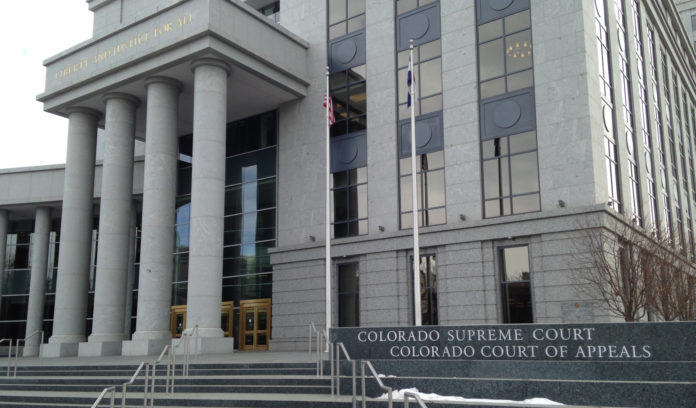
Editor’s Note: Law Week Colorado edits court opinion summaries for style and, when necessary, length.
Caylao-Do v. Logue
Quinessa Caylao-Do sued Denver police officer John Logue and the City and County of Denver for negligence after Logue struck Caylao-Do with his police car and injured her. The jury returned a verdict in favor of Caylao-Do.
On appeal, the city contended that the trial court erred by sustaining Caylao-Do’s Batson objection to a peremptory strike, permitting purported violations of a motions in limine order, and denying its motion for a new trial based on a juror’s alleged anti-police bias. On cross-appeal, Caylao-Do argued that the court erred by applying the Colorado Governmental Immunity Act’s damages cap to costs and prejudgment interest.
But the Colorado Court of Appeals discerned no error and affirmed the judgment.
People v. Jones
Ramondo Marquis Jones appealed his conviction of first-degree murder. The Colorado Court of Appeals affirmed.
In doing so, it held, as a matter of first impression in Colorado, that evidence of a defendant’s prior acts of abuse against a witness may be admissible under Colorado Rule of Evidence 404(b) to buttress the witness’s credibility if that evidence could explain the witness’s reluctance to testify or the witness’s changed accounts.
Marquez v. Schaefer
Andrew Marquez appealed the district court’s order dismissing the complaint that he brought pursuant to Colorado Rule of Civil Procedure 106(a)(4) against the Colorado Bureau of Investigation after it denied his application to purchase a firearm because of his criminal conviction under a municipal ordinance.
Marquez contended that his domestic violence assault conviction under a Denver municipal ordinance should not have precluded him from purchasing a firearm. The resolution of this question required the Colorado Court of Appeals to determine, for the first time in a published Colorado opinion, whether an act of domestic violence that results in a conviction for violating a municipal ordinance may constitute a “misdemeanor under … local law” as used in Section 921(a)(33)(A)(i) of federal law, thereby precluding the convicted person from buying a firearm.
The district court answered this question affirmatively. The appeals court did too and affirmed the judgment.
Johnson v. Staab
Sgt. Gregory Buschy and detective Gary Staab, appealed the judgment entered on a jury verdict in favor of Ruby Johnson. Claiming that Buschy and Staab illegally searched her home, Johnson sued them under state law. Johnson alleged that Buschy and Staab obtained a search warrant for her house by submitting an affidavit that was tainted by material omissions and false statements.
This appeal requires the Colorado Court of Appeals to consider whether, for purposes of seeking damages under the statute, a constitutional violation occurs where the officers’ false statements in and omissions from the affidavit were the result of negligence or mistake — as opposed to being made intentionally or with reckless disregard for the truth.
The appeals court concluded that such negligence or mistake does not create a constitutional violation. And because the jury was not told to treat such negligent or mistaken statements or omissions differently from any misleading statements and omissions made intentionally or recklessly, it was incorrectly instructed. The court reversed the judgment and remanded for a new trial.
Americans for Prosperity v. State of Colorado
This appeal implicates provisions of the Colorado Constitution and state statutes concerning the collection and spending of state revenue.
Americans for Prosperity asserted that the General Assembly violated Section 24-77-108 and the Taxpayer Bill of Rights when it created several enterprises as part of a transportation sustainability bill passed in 2022. The district court disagreed and granted summary judgment in favor of the state of Colorado, Gov. Jared Polis, the Colorado Department of Revenue, Colorado Controller Robert Jaros, the Community Access Enterprise, the Clean Fleet Enterprise, the Clean Transit Enterprise, the Nonattainment Area Air Pollution Mitigation Enterprise and the Statewide Bridge and Tunnel Enterprise.
The Colorado Court of Appeals affirmed.

